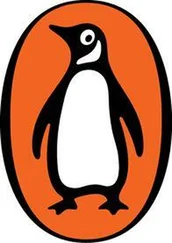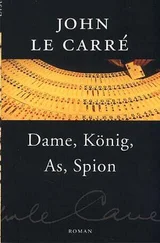John le Carr� - Tinker Tailor Soldier Spy
Здесь есть возможность читать онлайн «John le Carr� - Tinker Tailor Soldier Spy» весь текст электронной книги совершенно бесплатно (целиком полную версию без сокращений). В некоторых случаях можно слушать аудио, скачать через торрент в формате fb2 и присутствует краткое содержание. Жанр: Триллер, на английском языке. Описание произведения, (предисловие) а так же отзывы посетителей доступны на портале библиотеки ЛибКат.
- Название:Tinker Tailor Soldier Spy
- Автор:
- Жанр:
- Год:неизвестен
- ISBN:нет данных
- Рейтинг книги:3 / 5. Голосов: 1
-
Избранное:Добавить в избранное
- Отзывы:
-
Ваша оценка:
- 60
- 1
- 2
- 3
- 4
- 5
Tinker Tailor Soldier Spy: краткое содержание, описание и аннотация
Предлагаем к чтению аннотацию, описание, краткое содержание или предисловие (зависит от того, что написал сам автор книги «Tinker Tailor Soldier Spy»). Если вы не нашли необходимую информацию о книге — напишите в комментариях, мы постараемся отыскать её.
Tinker Tailor Soldier Spy — читать онлайн бесплатно полную книгу (весь текст) целиком
Ниже представлен текст книги, разбитый по страницам. Система сохранения места последней прочитанной страницы, позволяет с удобством читать онлайн бесплатно книгу «Tinker Tailor Soldier Spy», без необходимости каждый раз заново искать на чём Вы остановились. Поставьте закладку, и сможете в любой момент перейти на страницу, на которой закончили чтение.
Интервал:
Закладка:
Eventually, by sauntering in and out of other people's offices, he began to realise what everyone else had realised some weeks before. The Circus wasn't just silent, it was frozen. Nothing was coming in, nothing was going out; not at the level at which Guillam moved, anyhow. Inside the building people in authority had gone to earth and when pay day came round there were no buff envelopes in the pigeon-holes because, according to Mary, the housekeepers had not received the usual monthly authority to issue them. Now and then somebody would say they had seen Alleline leaving his club and he looked furious. Or Control getting into his car and he looked sunny. Or that Bill Haydon had resigned on the grounds that he had been overruled or undercut, but Bill was always resigning. This time, said the rumour, the grounds were somewhat different, however: Haydon was furious that the Circus would not pay the Czech price for Jim Prideaux's repatriation; it was said to be too high in agents, or prestige. And that Bill had broken out in one of his fits of chauvinism, and declared that any price was fair to get one loyal Englishman home: give them everything, only get Jim back.
Then one evening Smiley peered round Guillam's door and suggested a drink. Mary didn't realise who he was and just said 'Hullo' in her stylish classless drawl. As they walked out of the Circus side by side Smiley wished the janitors good night with unusual terseness, and in the pub in Wardour Street he said 'I've been sacked,' and that was all.
From the pub they went to a wine bar off Charing Cross, a cellar with music playing and no one there. 'Did they give any reason?' Guillam enquired. 'Or is it just because you've lost your figure?'
It was the word 'reason' that Smiley fixed on. He was by then politely but thoroughly drunk, but reason, as they walked unsteadily along the Thames embankment, reason got through to him:
'Reason as logic, or reason as motive?' he demanded, sounding less like himself than Bill Haydon, whose pre-war, Oxford Union style of polemic seemed in those days to be in everybody's ears. 'Or reason as a way of life?' They sat on a bench. 'They don't have to give me reasons. I can write my own damn reasons. And that is not the same,' he insisted as Guillam guided him carefully into a cab, gave the driver the money and the address, 'that is not the same as the half-baked tolerance that comes from no longer caring.'
'Amen,' said Guillam, fully realising as he watched the cab pull into the distance that by the rules of the Circus their friendship, such as it was, had that minute ended. Next day Guillam learned that more heads had rolled and that Percy Alleline was to stand in as nightwatchman with the title of acting chief and that Bill Haydon, to everyone's astonishment, but most likely out of persisting anger with Control, would serve under him; or as the wise ones said, over him.
By Christmas, Control was dead: 'They'll get you next,' said Mary, who saw these events as a second storming of the Winter Palace, and she wept when Guillam departed for the siberias of Brixton, ironically to fill Jim Prideaux's slot.
Climbing the four steps to the Circus that wet Monday afternoon, his mind bright with the prospect of felony, Guillam passed these events in review and decided that today was the beginning of the road back.
He had spent the previous night at his spacious flat in Eaton Place in the company of Camilla, a music student with a long body and a sad, beautiful face. Though she was not more than twenty, her black hair was streaked with grey, as if from a shock she never talked about. As another effect, perhaps, of the same undescribed trauma, she ate no meat, wore no leather and drank nothing alcoholic; only in love, it seemed to Guillam, she was free of these mysterious restraints.
He had spent the morning alone in his extremely dingy room in Brixton photographing Circus documents, having first drawn a subminiature camera from his own operational stores, a thing he did quite often to keep his hand in. The storeman had asked 'daylight or electric?' and they had a friendly discussion about film grain. He told his secretary he didn't want to be disturbed, closed his door and set to work according to Smiley's precise instructions. The windows were high in the wall. Even sitting, he could see only the sky and the tip of the new school up the road.
He began with works of reference from his personal safe. Smiley had given him priorities. First the staff directory, on issue to senior officers only, which supplied the home addresses, telephone numbers, names, and worknames of all home-based Circus personnel. Second, the handbook on staff duties, including the fold-in diagram of the Circus's reorganisation under Alleline. At its centre lay Bill Haydon's London Station like a giant spider in its own web. 'After the Prideaux fiasco,' Bill had reputedly fumed, 'we'll have no more damned private armies, no more left hand not knowing what the right hand is doing.' Alleline, Guillam noticed, was billed twice: once as Chief, once as 'Director Special Sources'. According to rumour it was those sources which kept the Circus in business. Nothing else, in Guillam's view, could account for the Circus's inertia at working level and the esteem it enjoyed in Whitehall. To these documents, at Smiley's insistence, he added the scalphunters' revised charter, in the form of an Alleline letter beginning 'Dear Guillam', and setting out in detail the diminution of his powers. In several cases, the winner was Toby Esterhase, head of Acton lamplighters, the one outstation which had actually grown fatter under lateralism.
Next he moved to his desk and photographed, also on Smiley's instruction, a handful of routine circulars which might be useful as background reading. These included a belly-ache from Admin on the state of safe houses in the London area (' Kindly treat them as if they were your own ) and another about the misuse of unlisted Circus telephones for private calls. Lastly a very rude personal letter from documents warning him 'for the last time of asking' that his workname driving licence was out of date, and that unless he took the trouble to renew it 'his name would be forwarded to housekeepers for appropriate disciplinary action'.
He put away the camera and returned to his safe. On the bottom shelf lay a stack of lamplighter reports issued over Toby Esterhase's signature and stamped with the codeword 'Hatchet'. These supplied the names and cover jobs of the two or three hundred identified Soviet intelligence officers operating in London under legal or semi-legal cover; trade, Tass, Aeroflot, Radio Moscow, consular and diplomatic. Where appropriate they also gave the dates of lamplighter investigations and names of branch lines, which is jargon for contacts thrown up in the course of surveillance and not necessarily run to earth. The reports came in a main annual volume and monthly supplements. He consulted the main volume first, then the supplements. At eleven twenty he locked his safe, rang London Station on the direct line and asked for Lauder Strickland of Banking Section.
'Lauder, this is Peter from Brixton, how's trade?'
'Yes, Peter, what can we do for you?'
Brisk and blank. We of London Station have more important friends, said the tone.
It was a question of washing some dirty money, Guillam explained, to finance a ploy against a French diplomatic courier who seemed to be for sale. In his meekest voice he wondered whether Lauder could possibly find the time for them to meet and discuss it. Was the project London Station cleared? Lauder demanded. No, but Guillam had already sent the papers to Bill by shuttle. Lauder Strickland came down a peg; Guillam pressed his cause: 'There are one or two tricky aspects, Lauder, I think we need your sort of brain.'
Lauder said he could spare him half an hour.
Читать дальшеИнтервал:
Закладка:
Похожие книги на «Tinker Tailor Soldier Spy»
Представляем Вашему вниманию похожие книги на «Tinker Tailor Soldier Spy» списком для выбора. Мы отобрали схожую по названию и смыслу литературу в надежде предоставить читателям больше вариантов отыскать новые, интересные, ещё непрочитанные произведения.
Обсуждение, отзывы о книге «Tinker Tailor Soldier Spy» и просто собственные мнения читателей. Оставьте ваши комментарии, напишите, что Вы думаете о произведении, его смысле или главных героях. Укажите что конкретно понравилось, а что нет, и почему Вы так считаете.









